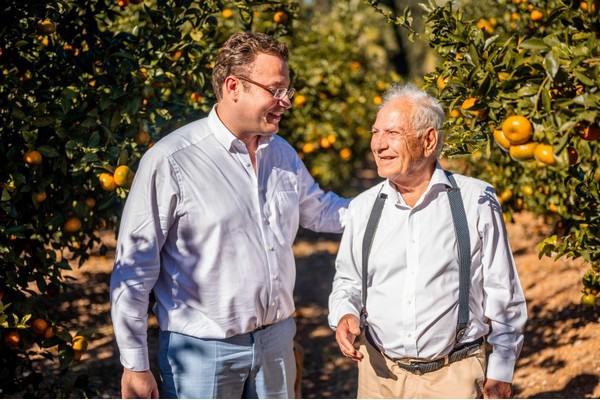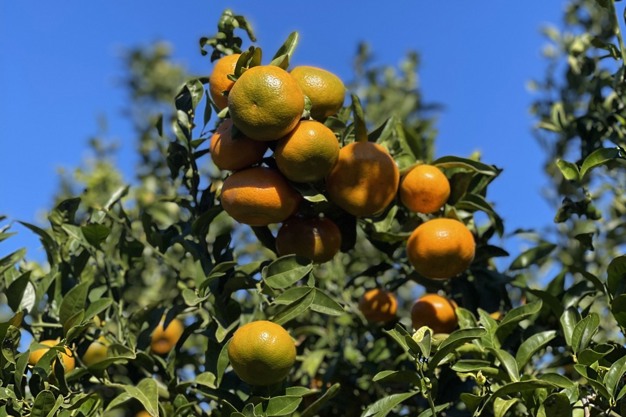The citrus harvest in the Northern Hemisphere is gradually coming to an end. In Spain, the largest producing country, the season has been predominantly flawless without major deviations, says Philippe Peiró, Managing Director of Port International Europe Sourcing GmbH. However, in terms of quantity, the 23/24 season has been rather fluctuating, he says. "For the early varieties up to and including December, there was only a small production, which was of excellent quality as we were able to select well. In January, demand exceeded supply, which drove prices up accordingly."
The Spanish citrus sector is in a price battle with other source countries in the Mediterranean region, especially Egypt. Peiró: "Egypt is currently quite market-relevant for oranges, as we are in a special situation. Normally, Egypt mainly supplies the Asian region, Oceania, Scandinavia, and Great Britain with oranges. Due to the situation in the Suez Canal, many Egyptian oranges are now also reaching the Central European market. Furthermore, Greece competes with Spain, especially in the area of oranges and organic oranges. For mandarins and clementines, however, Greece is not market-influencing, as the volume is too small compared to Spain. Moreover, Turkey is an important citrus exporting country, with its main markets primarily in the East and the West. Accordingly, Turkey has only a minor influence on the markets in Central Europe."

Agrícola Valenciana produces citrus fruits on an area of over 50 hectares annually. Philippe Peiró (l) is the son of the founder of Agrícola Valenciana (r).
Structural change in Spanish citrus cultivation
Moreover, Peiró observes a fundamental structural change in Spanish citrus cultivation. "The number of citrus producers in Spain has significantly reduced in recent years. Previously, there were many small farmers with a cultivation area of up to five hectares, who were mostly affiliated with smaller cooperatives. In the last five to ten years, many of these small areas were sold and transferred to large farmers, major exporters, or agricultural funds with a cultivation capacity between 500 and 2,000 hectares. Furthermore, we see a clear trend towards more licensed varieties and a strong focus in variety development on taste and shelf life. The cultivation of old varieties is thus continuing to decline."
Peiró also notes that the effects of climate change are becoming increasingly apparent. "Pests, such as the citrus mealybug Cotonet, are spreading faster due to higher temperatures. Additionally, the issue of water adds to the challenge: Due to the lack of water, the cultivation areas in many regions can no longer be expanded. Here, it is essential to develop water management in the coming years wisely. When it does rain in the Spanish citrus growing areas, it rains a lot. We are therefore faced with the task of using innovative technology to sensibly store and distribute this rainwater across the area." Another challenge Peiró sees is in curbing the significant increase in costs. "Especially wages, packaging, and logistics or toll costs are the most burdensome. Furthermore, the costs in the area of fertilizers and plant protection products, which have risen by up to 15-20 percent since the beginning of the Ukraine war, should not be overlooked."

Professionalization of the citrus sector
The Spanish citrus sector will continue to professionalize in the coming years, Peiró predicts. "Due to their experience and capacities, mainly large farmers will be able to survive in the market in the long term. This will inevitably lead to a further decline in the number of small farmers, as they can hardly exist anymore. The climate remains a significant risk: It is uncertain in what form and under what conditions citrus cultivation will be possible in the coming decades."
Images: Port International Sourcing GmbH
For more information:
Philippe Peiró
Port International Sourcing GmbH
Lippeltstrasse 1
20097 Hamburg
Phone: +49 40 301000-545
E-Mail: info@port-international.com
Website: www.port-international.com
